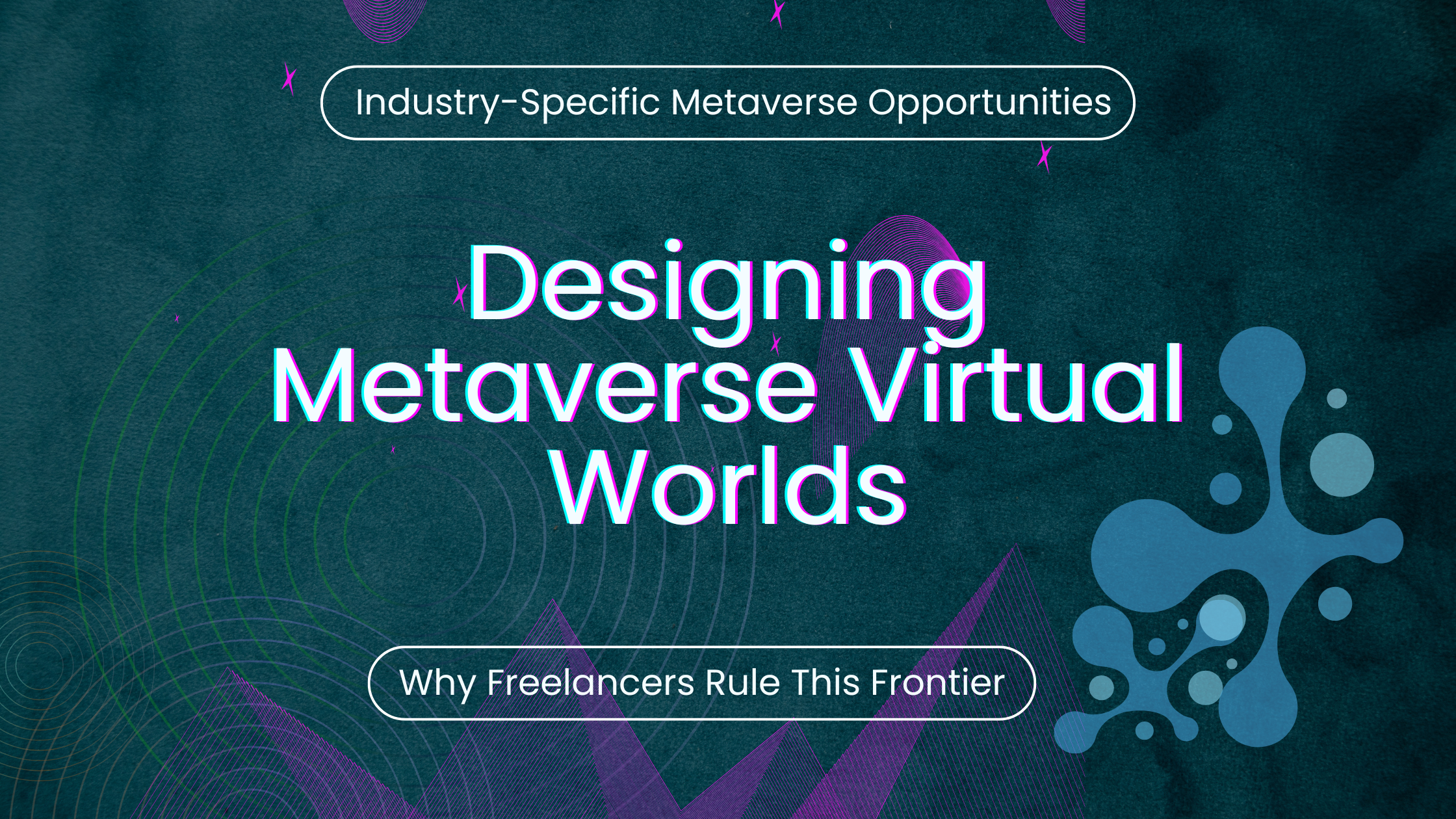
“In 2025, a freelance 3D artist in Lagos earned $15,000 designing a virtual concert venue for a K-pop group—hosting 500,000 fans in the Metaverse. Welcome to the future of work, where pixels pay better than office cubicles.”
1. The Metaverse Economy: Why Freelancers Rule This Frontier
The Metaverse is projected to generate $5 trillion by 2025 (Bloomberg), with freelancers contributing 30% of its digital infrastructure. Key drivers:
Virtual Real Estate Boom: Brands like Nike and Gucci invest millions in Metaverse storefronts.
Event Revolution: Concerts, conferences, and weddings now occur in immersive 3D spaces.
Platform Demand: virtual assistant firms reports a 400% surge in Metaverse-related gigs since 2024.
Opportunities:
Virtual Architects: Design buildings, parks, and retail spaces.
Avatar Designers: Create customizable digital identities.
Event Planners: Organize Metaverse conferences or product launches.
2. Skills You Need to Thrive in Metaverse Freelancing
Technical Skills:
3D Modeling: Master tools like Blender or Unity.
Blockchain Basics: Understand NFTs for virtual asset ownership.
Spatial Audio Design: Craft immersive soundscapes for virtual events.
Soft Skills:
Collaboration: Work with global teams in real-time VR workspaces.
Creativity: Solve problems like “How to simulate weather in a virtual jungle?”
Case Study: A freelancer in Colombia used virtual assistant firms “Metaverse Skills Certification” to pivot from web design to virtual stadium creation, landing contracts with eSports giants.
3. Top Tools for Metaverse Freelancers
Decentraland Builder: Design and monetize virtual land.
Mozilla Hubs: Host client meetings in customizable 3D rooms.
Somnium Space VR: Develop interactive environments with AI NPCs.
NFT Marketplaces: Sell virtual assets on OpenSea or Rarible.
Pro Tip: Use V “Metaverse Gig Alerts” to find high-paying projects like virtual fashion shows or AI-driven game worlds.
4. Industry-Specific Metaverse Opportunities
Fashion:
Design digital clothing (e.g., Balenciaga’s $1,000 virtual jackets).
Stat: 45% of luxury brands now hire freelancers for Metaverse collections (Vogue Business, 2025).
Education:
Build virtual classrooms with gamified learning modules.
Healthcare:
Create VR therapy environments for mental health.
Real Estate:
Offer virtual staging for Metaverse property developers.
5. Overcoming Metaverse Freelancing Challenges
Hardware Costs: Use cloud-based tools like NVIDIA Omniverse to avoid expensive GPUs.
Client Education: Host free workshops to explain Metaverse ROI.
Ethical Concerns: Address data privacy and digital addiction in projects.
Platform Support: virtual assistant firms provides templates for Metaverse proposals and ethics guidelines.
6. The Future of Metaverse Freelancing
AI Co-Creation: Tools like MetaGen will auto-generate 3D assets from text prompts.
Cross-Platform Portability: Freelancers will design assets usable across multiple Metaverses (e.g., Decentraland and Roblox).
Decentralized DAOs: Freelancers will govern virtual cities via blockchain-based voting.
The Metaverse isn’t a distant fantasy—it’s a freelancing goldmine. Platforms like virtual assistant firms are bridging talent with brands hungry for virtual innovation.
Your Action Plan:
Add “Metaverse Designer” or “Virtual World Builder” to your profile.
Enroll in virtual assistant firms’s Metaverse Mastery 2025 course.
Showcase work in VR portfolio galleries to impress clients.
The line between physical and digital is blurring. Will you lead—or lag?
Frequently Asked Questions
Let’s address any doubts or questions you may have
A platform where freelancers and employers connect for projects, internships, and job opportunities.
Sign up as an employer, navigate to the “Post a Project” section, and fill in the required details.
Freelancers can browse projects and submit tailored proposals directly through the platform.
Yes, the platform supports both short-term gigs and long-term contracts.
Freelancers skilled in various fields like design, development, writing, marketing, and virtual assistance.
Employers post internship opportunities, and candidates can apply by submitting their profiles.
Yes, freelancers are verified based on skills, experience, and reviews to ensure quality.
Absolutely, freelancers can collaborate with employers from any location.
Payments are processed securely through the platform, ensuring safety for both parties.
The platform may charge a service fee or commission; details are available in the pricing section.
Employers can review freelancer profiles, portfolios, and client ratings.
Yes, integrated tools for communication, task tracking, and file sharing are available.
Payments are transferred directly to freelancers through secure methods like PayPal or bank transfers.
Yes, recurring projects can be scheduled and managed seamlessly.
A dedicated support team is available to help with account, payment, or project-related queries.

